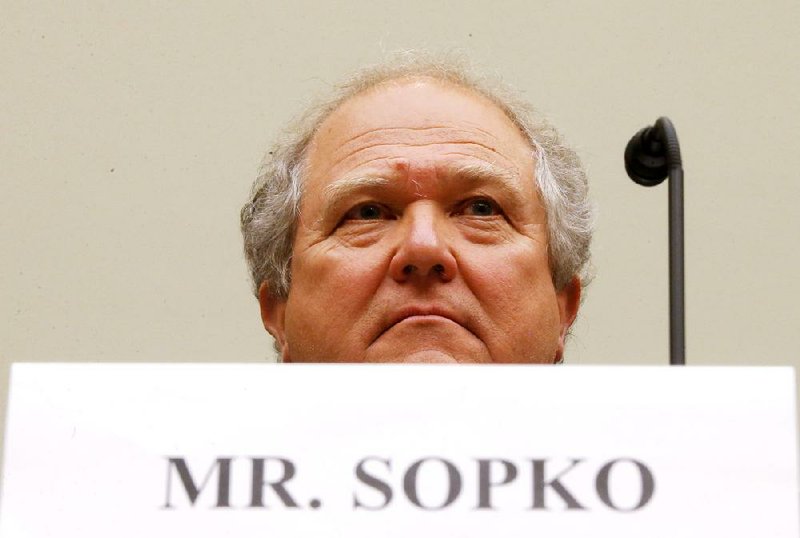WASHINGTON -- Afghans are growing more opium poppies than ever before, and it's threatening to wipe out gains made in improving health, education and governance in the country, the U.S. watchdog for spending in Afghanistan said Tuesday.
John Sopko, the special inspector general for Afghan reconstruction, told a House subcommittee that the narcotics trade is tainting the financial sector, stoking corruption and helping Taliban insurgents and criminal networks.
He said there already are signs that elements within the Afghan security forces are making arrangements with rural populations to permit opium-poppy growing as a way to build local patronage networks.
"The expanding cultivation and trafficking of drugs is one of the most significant factors putting the entire U.S. and international donor investment in the reconstruction of Afghanistan at risk," he said.
"Meanwhile, the United States and other donor nations assisting Afghanistan have, by and large, made counter-narcotics programming a lower strategic priority at the same time that the 2014 drawdown of U.S. and coalition forces increases the security risks in the country."
The U.N. Office of Drugs and Crime said Afghanistan produced nearly $3 billion in opium and its heroin and morphine derivatives last year -- up from $2 billion the year before.
From 2002 through March of this year, the U.S. had provided more than $7 billion for counternarcotics efforts and agriculture stabilization programs, an important component of the U.S. strategy to curb opium poppy production.
"On my trips to Afghanistan in 2013 and earlier this year, no one at the [U.S.] Embassy could convincingly explain to me how the U.S. government counter-narcotics efforts are making a meaningful impact on the narcotics trade or how they will have a significant impact after" the U.S.-led combat mission ends in December, Sopko said.
Sopko said his team plans to conduct a comprehensive audit to assess how U.S. taxpayer money has been spent on programs to counter narcotics trafficking and whether it's been effective.
On his recent visits, he said, he spoke with Afghan officials about whether the country will become a successful modern state or an insurgent state.
"There is a third possibility," he said. "A narco-criminal state."
In the hearing, Rep. Ileana Ros-Lehtinen, R-Fla., noted that in 2009, the U.S., along with other donor nations, pledged to provide 50 percent of developmental aid straight into the coffers of Afghan ministries. But that year, various oversight reports determined that some ministries were ill-equipped to receive the U.S. taxpayer-funded assistance because of a lack of adequate management or oversight.
Still, the U.S. Agency for International Development "apparently continued anyway, without regard to these warnings," she said.
Kathleen Campbell, acting deputy assistant on Afghanistan and Pakistan affairs for USAID, said the agency's investment in Afghanistan has reaped results and those gains need to be protected.
"USAID's investment -- only 3 percent of the overall cost of the war -- and robust oversight have contributed to Afghanistan experiencing greater improvement in human development, a measure of health, education and standard of living, than any other country in the world since 2000," she said.
"We believe that assistance to Afghanistan must decrease to more sustainable levels but maintain a rate that allows Afghans to preserve the gains achieved."
A Section on 06/11/2014


